Hibiscus tea is one of the most popular herbal teas.
There are many health claims about hibiscus, but just how much of these assertions are true?
This article takes an evidence-based look at the potential benefits and risks of hibiscus tea.
What Is Hibiscus Tea?
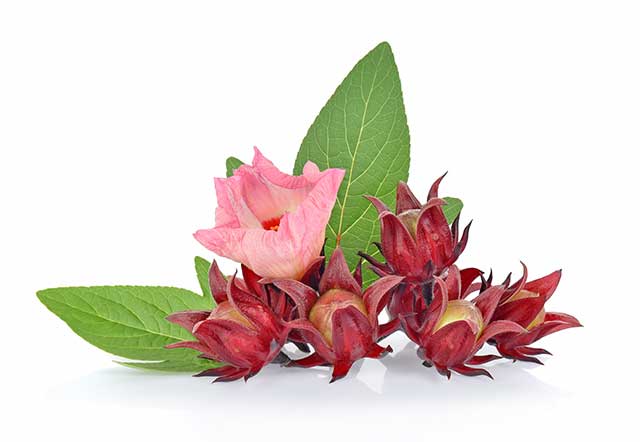
Hibiscus is a herbal tea made from the dried sepals of the roselle flower, otherwise known as Hibiscus sabdariffa.
These sepals enclose and protect the flower’s petals before they appear, and they provide support for the petals after the flower blooms.
Steeping these sepals in hot water creates hibiscus tea, a hot drink with a deep pink color and a slightly tart taste.
As a result of its cranberry-like flavor, some people refer to the drink as ‘sour tea.’
Potential Health Benefits of Hibiscus Tea
There are numerous health claims about hibiscus tea, but in this article, we’ll determine the ones with evidence behind them.
1) May Help To Lower Blood Pressure
Most of the scientific research on hibiscus tea has focused on the drink’s potential blood pressure-lowering effects.
On this note, a recent systematic review examined the results of five randomized, controlled trials featuring 390 participants.
Although the sample size (five studies) is relatively small, the results showed “a significant effect in lowering both systolic and diastolic blood pressure” (1).
To be precise; the results showed that, compared to the control group, the hibiscus group of participants had a weighted mean difference of;
- -7.58 mmHg systolic blood pressure
- -3.53 mmHg diastolic blood pressure
More studies are necessary to prove these potential blood pressure-lowering effects.
Researchers believe that the effect of hibiscus tea has on blood pressure comes from the high anthocyanin (a class of polyphenol) content of the flower’s sepals.
Numerous controlled studies have linked other polyphenol-containing foods to potential beneficial effects on blood pressure (2, 3).
2) Cholesterol Levels
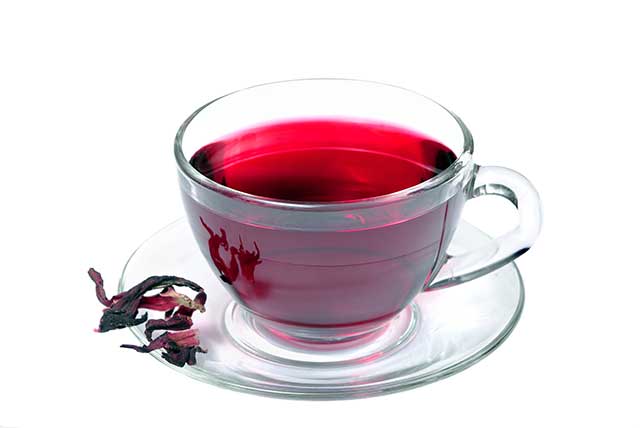
A second significant area of research on hibiscus relates to the effect it may have on cholesterol levels.
There are many marketing claims in this area speaking of how hibiscus “reduces cholesterol.”
However, these claims are not backed by any evidence.
For instance, several trials have shown that high and prolonged intake of hibiscus tea has little effect on cholesterol levels.
One randomized clinical trial assigned 45 patients with hypertension to drink two cups of hibiscus (each made with two spoons of dried leaves) per day for 30 days.
The table below shows how the lipid levels of the patients changed over the 30 days (4);
| Health Marker | Day 0 | Day 30 |
|---|---|---|
| Total Cholesterol | 206 | 212 |
| LDL Cholesterol | 130.8 | 133.2 |
| HDL Cholesterol | 44.3 | 46 |
| Triglycerides | 153.5 | 157.5 |
As shown, there was actually a slight (but non-significant) upward trend in total cholesterol, LDL, HDL, and triglycerides.
A recent systematic review and meta-analysis of six controlled studies featuring 474 patients also confirmed hibiscus tea’s lack of effect.
In short, the researchers concluded that “the available evidence does not support the efficacy of hibiscus in lowering serum lipids” (5).
3) Weight Loss Claims
Can hibiscus tea help with weight loss efforts?
A 10-week animal study and a 12-week human clinical trial both demonstrate that a high-polyphenol extract of hibiscus can help to (6, 7);
- Inhibit fat accumulation in the liver
- Slightly reduce body weight, BMI, and the waist-to-hip ratio
- Lower levels of free fatty acids in the blood
This all sounds very promising, but the problem here is that these studies were not using hibiscus tea that we can buy from a shop. Instead, they were using high-strength extracts made by scientists.
As a result, unless we are preparing our own standardized high-strength extracts of hibiscus, we won’t be getting these benefits.
There is currently no evidence showing that regular hibiscus tea provides weight loss benefits.
4) Provides a Good Source of Vitamin C
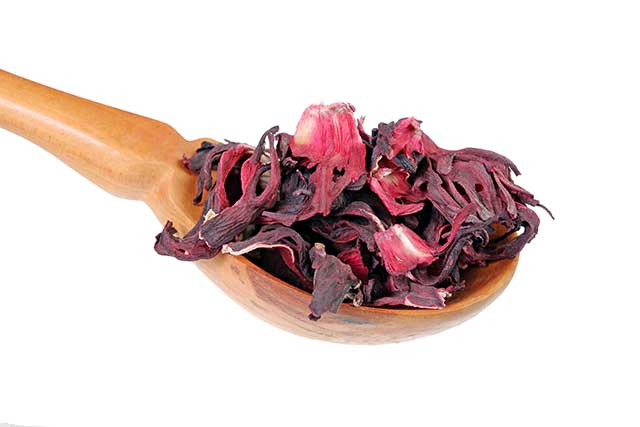
One recognized benefit of hibiscus tea is that the drink is high in vitamin C.
Since the dried sepals of the hibiscus flower are high in the vitamin, the tea also contains good concentrations of the nutrient.
The USDA Food and Nutrient database shows that a regular cup of hibiscus tea contains 43.6 mg of vitamin C.
Since the recommended daily serving of vitamin C is 60 mg, one cup of hibiscus tea represents 72% of the established daily value (8).
Vitamin C plays an antioxidant role in the body. In addition, the vitamin is essential for growth (and repair) of cells throughout the human body.
As a bonus, hibiscus contains no calories, meaning the tea is an easy way to get more vitamin C into our diet.
Hibiscus tea also provides a decent supply of iron and manganese.
5) Hibiscus Tea Is High In Polyphenols
Polyphenols are an interesting topic in the nutrition world, and we don’t fully understand their possible benefits at this stage.
Once thought to have a direct antioxidant in the body (they don’t), researchers now believe these compounds play a role in signaling pathways and activating immune responses (9, 10).
Generally speaking, food and drinks like red wine, green tea, and dark chocolate get most of the publicity for their polyphenol content. However, hibiscus tea provides a significant amount of these compounds.
It also appears that the polyphenols in hibiscus may have some health benefits. For example, a randomized trial demonstrates that hibiscus extracts raise blood levels of antioxidants and lower biomarkers of oxidative stress in human subjects (11).
Once again, it is important to note that the above study refers to an extract rather than actual hibiscus tea.
That said, this suggests that the compounds in hibiscus are bioavailable at least, although the effect from drinking (lower strength) tea would be less pronounced.
As mentioned earlier, the polyphenols in hibiscus tea are also thought to be behind the potential blood-pressure-lowering effects (12).
6) May Improve Insulin Sensitivity
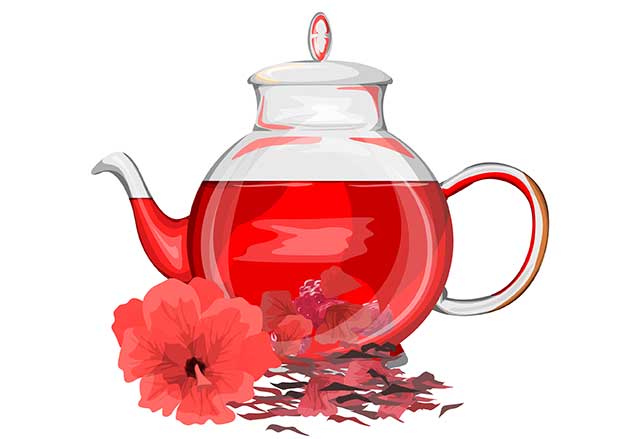
Another potential positive point about hibiscus is the role it may play in enhancing insulin sensitivity.
For instance, numerous studies have found that hibiscus has favorable effects on insulin resistance (13, 14, 15);
- A randomized clinical trial in human type 2 diabetes patients analyzed the effect of consuming three cups of hibiscus tea per day for 30 days. Interestingly, the results showed the participants who consumed hibiscus had increased beta cell function and a subsequent increase in fasting insulin levels by the study’s end.
- Tests using extracts of hibiscus show that the polyphenols they contain can attenuate insulin resistance.
- In a trial using diabetic rats, hibiscus polyphenols improved the utilization of glucose in the body by enhancing the activities of the glucose transporter protein GLUT 4. As a result, the rats had lower levels of blood glucose.
We cannot automatically apply the results of extracts and animal studies to humans, and more human trials in this area would be useful.
However, alongside the limited human studies, they do show that there is a potential mechanism for enhancing insulin sensitivity.
Risks of Using Hibiscus Tea
It is important to be aware that any herb (as well as most food) is capable of having both a positive and negative effect on health.
Most of the concerns surrounding hibiscus are in regard to pregnant women consuming the tea.
Can Hibiscus Tea Potentially Cause Pregnancy Complications?
It is easy to find information suggesting that hibiscus is capable of causing complications during pregnancy.
Specifically, it is thought that consuming the tea could potentially lead to uterus contractions and the risk of miscarriage.
Is there any scientific evidence behind this idea?
First of all, for obvious reasons, it would be unethical to test a hypothesis that hibiscus can induce miscarriages in human trials.
Although it may not seem a nice idea, these studies have been done on animals.
The results of one study using a hibiscus extract on pregnant rats were mixed but showed evidence of possible detrimental effects during pregnancy.
In short, the concerns were strong enough for the researchers to conclude that the use of the extract “may be harmful to healthy individuals and its use should be completely avoided in pregnancy” (16).
Aside from this study, recent research on the issue is limited.
As there is no research showing that hibiscus tea is safe for pregnant women, it may be wise to exercise caution and avoid consuming it during pregnancy.
Anyone with any worries or confusion about this issue should speak with their doctor.
Be Wary of Exaggerated Health Claims
Lastly, it isn’t difficult to come across exaggerated claims that hibiscus can help to prevent cancer and other serious diseases.
However, these claims largely come from test-tube studies using high-strength extracts of the chemical compounds in hibiscus (17, 18, 19).
As such, we cannot expect these benefits merely from drinking hibiscus leaves steeped in water.
Final Thoughts
There is a lot to like about hibiscus tea.
While many health claims aren’t supported by evidence, research appears to suggest hibiscus may help with blood pressure and insulin sensitivity.
Additionally, the tea is a tasty and refreshing calorie-free drink that supplies several beneficial nutrients.
Overall, hibiscus tea is one of the healthier drink options, but it is probably best to think of any health benefits as a bonus.
For more information on popular tea options, see this guide to yerba mate or read this review of rooibos tea.

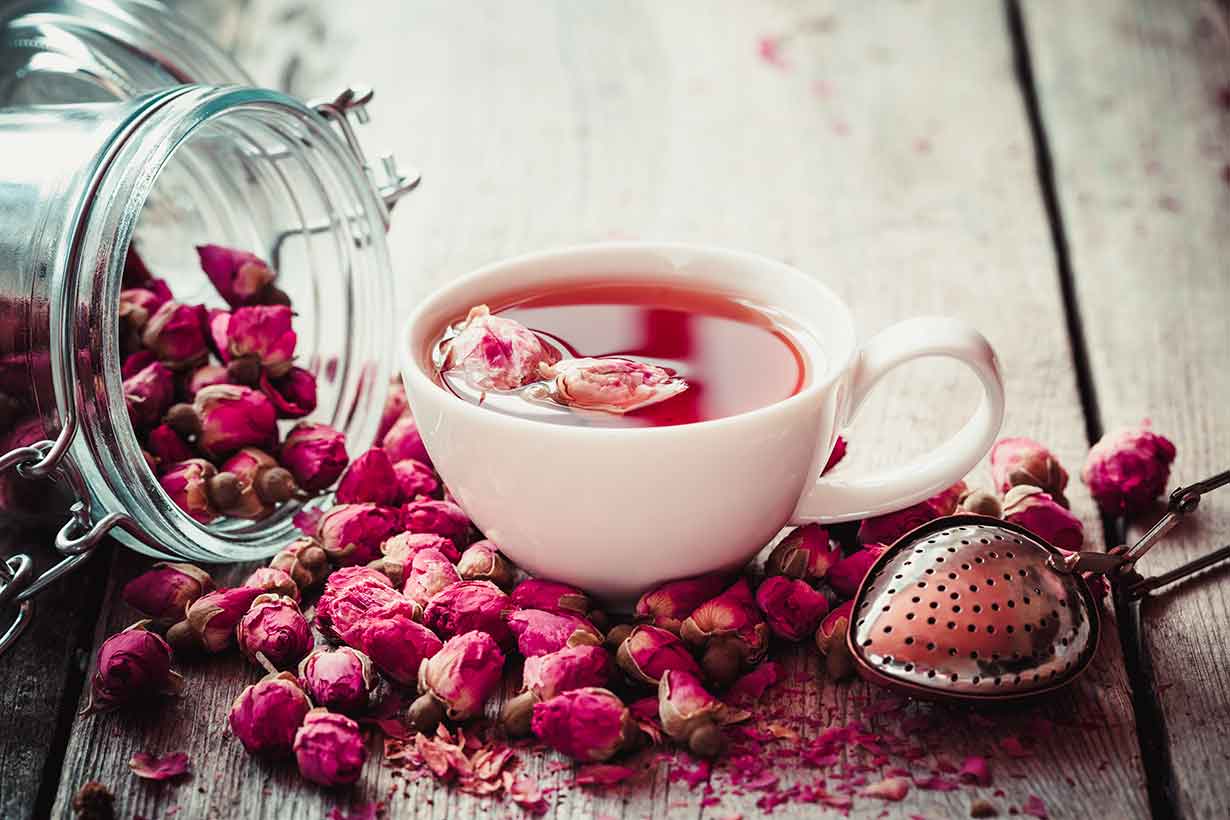
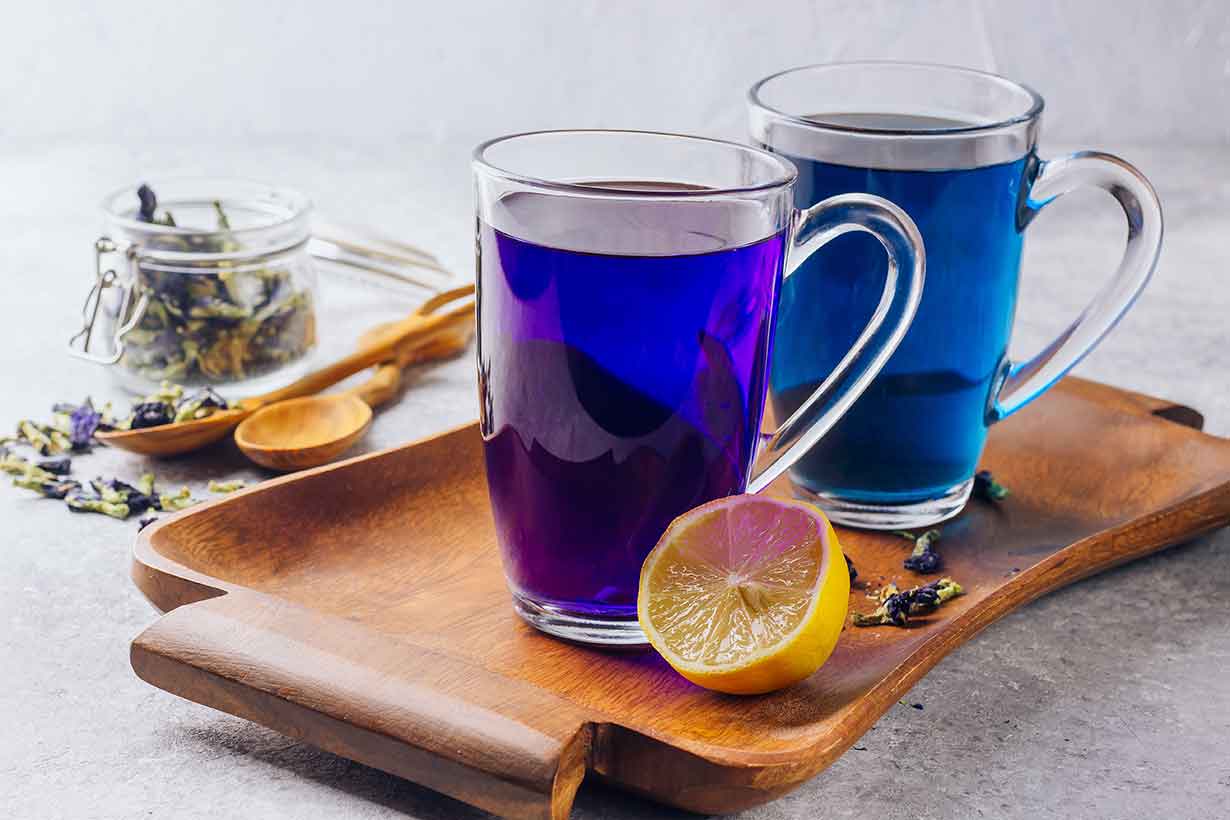
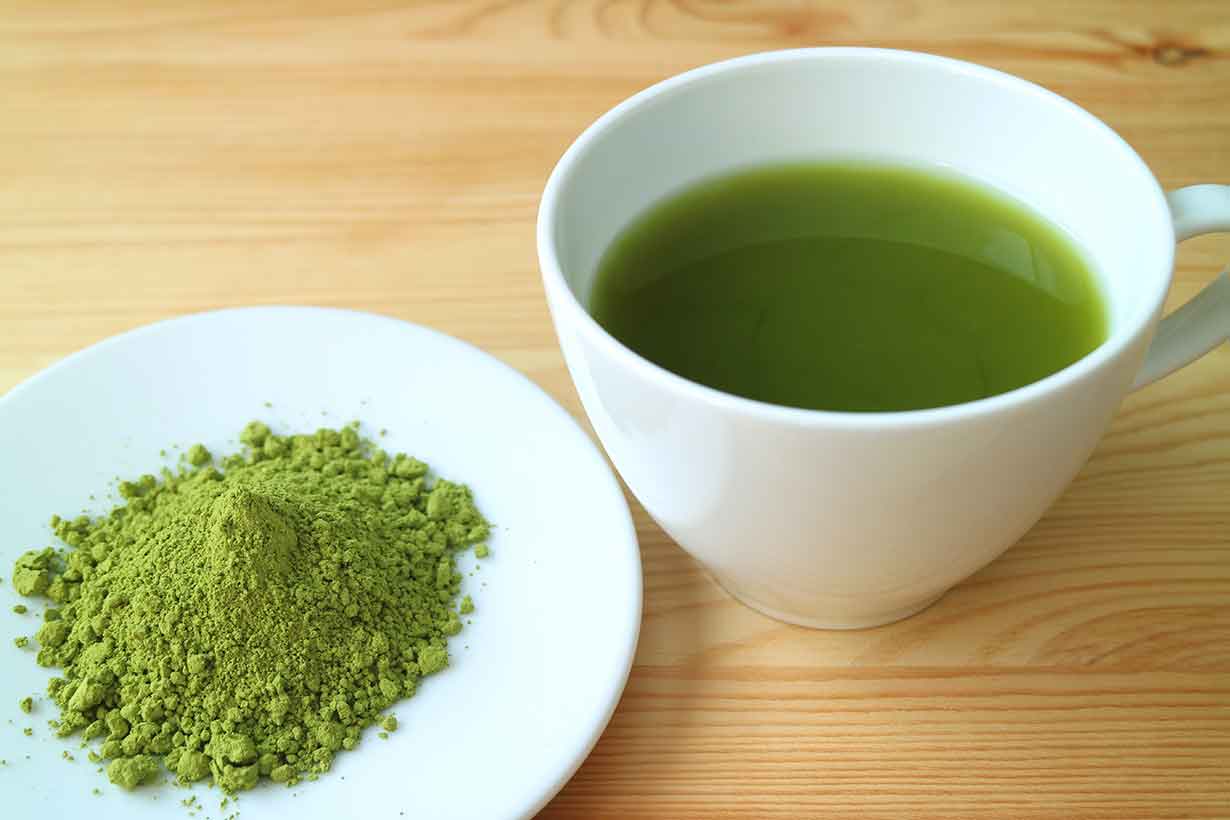
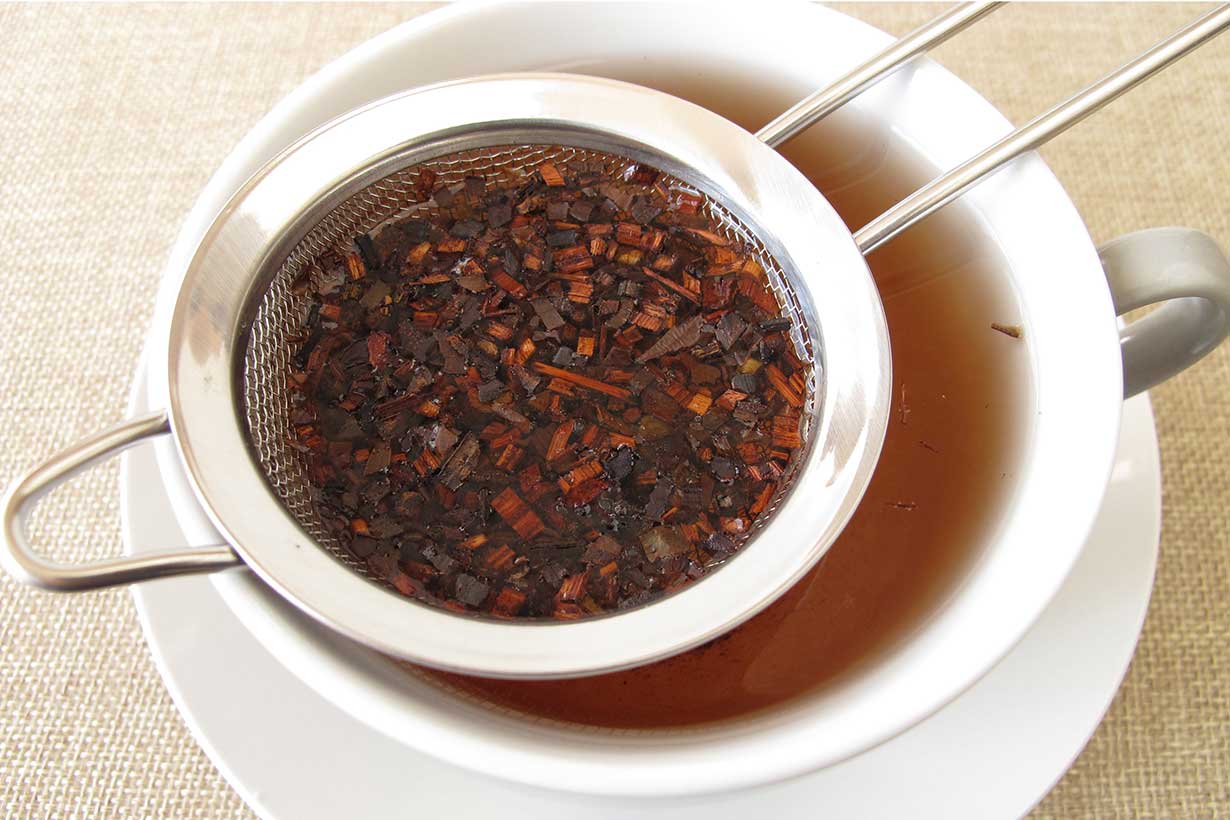


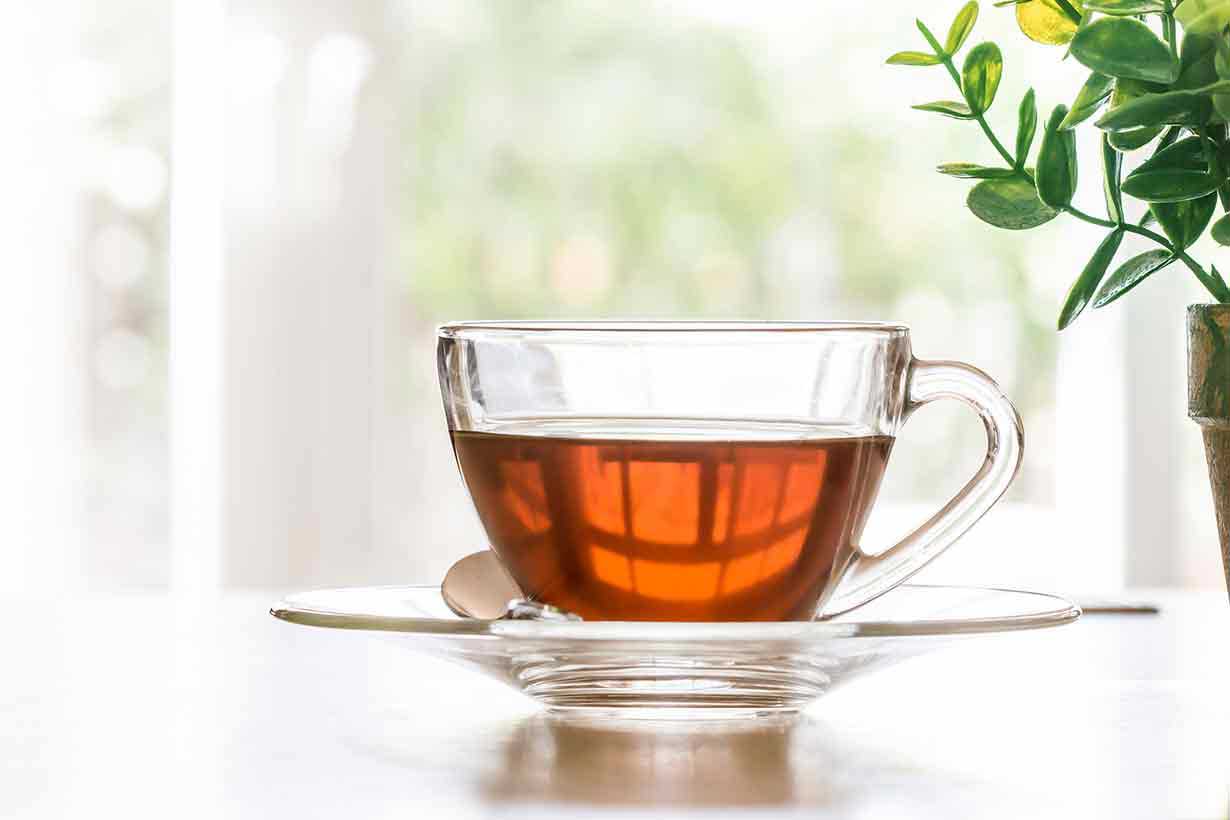
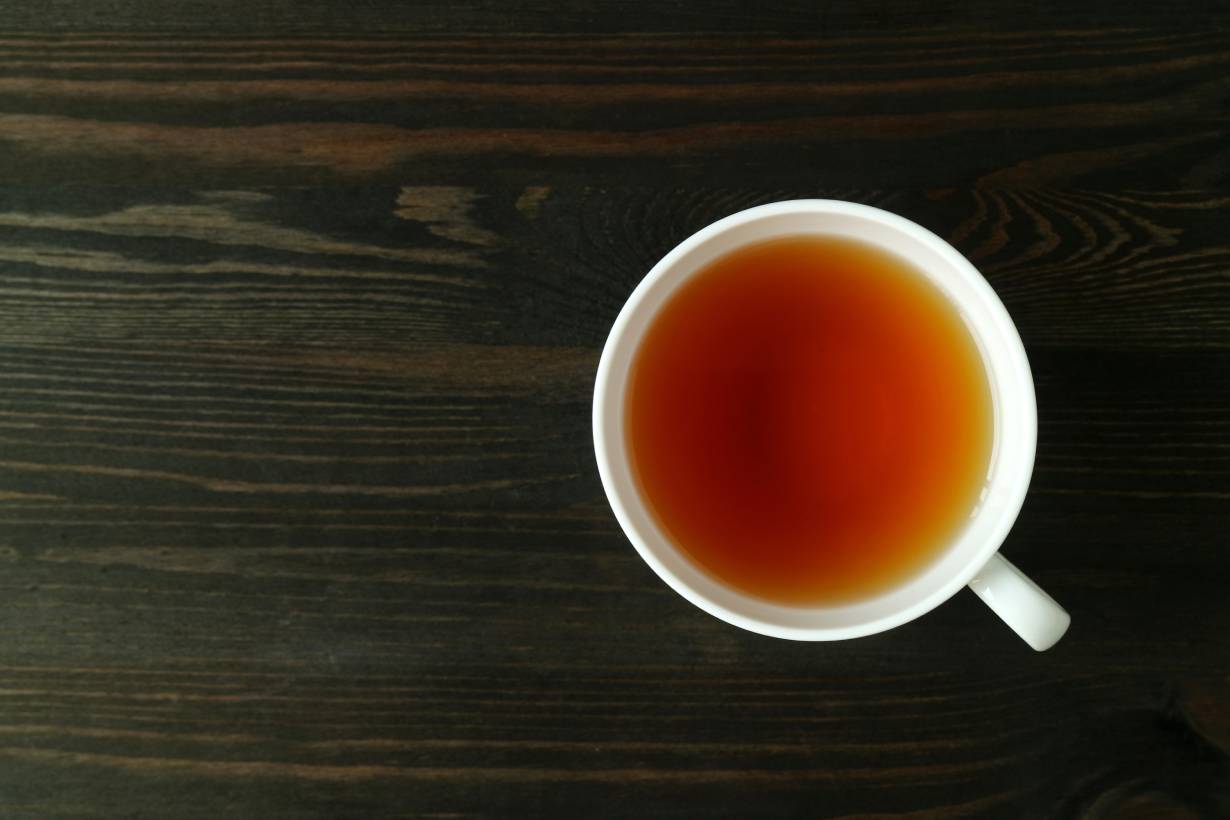
Where can I buy this tea?
You should be able to buy hibiscus from any big supermarket or health/tea store. If not, it’s widely available online.